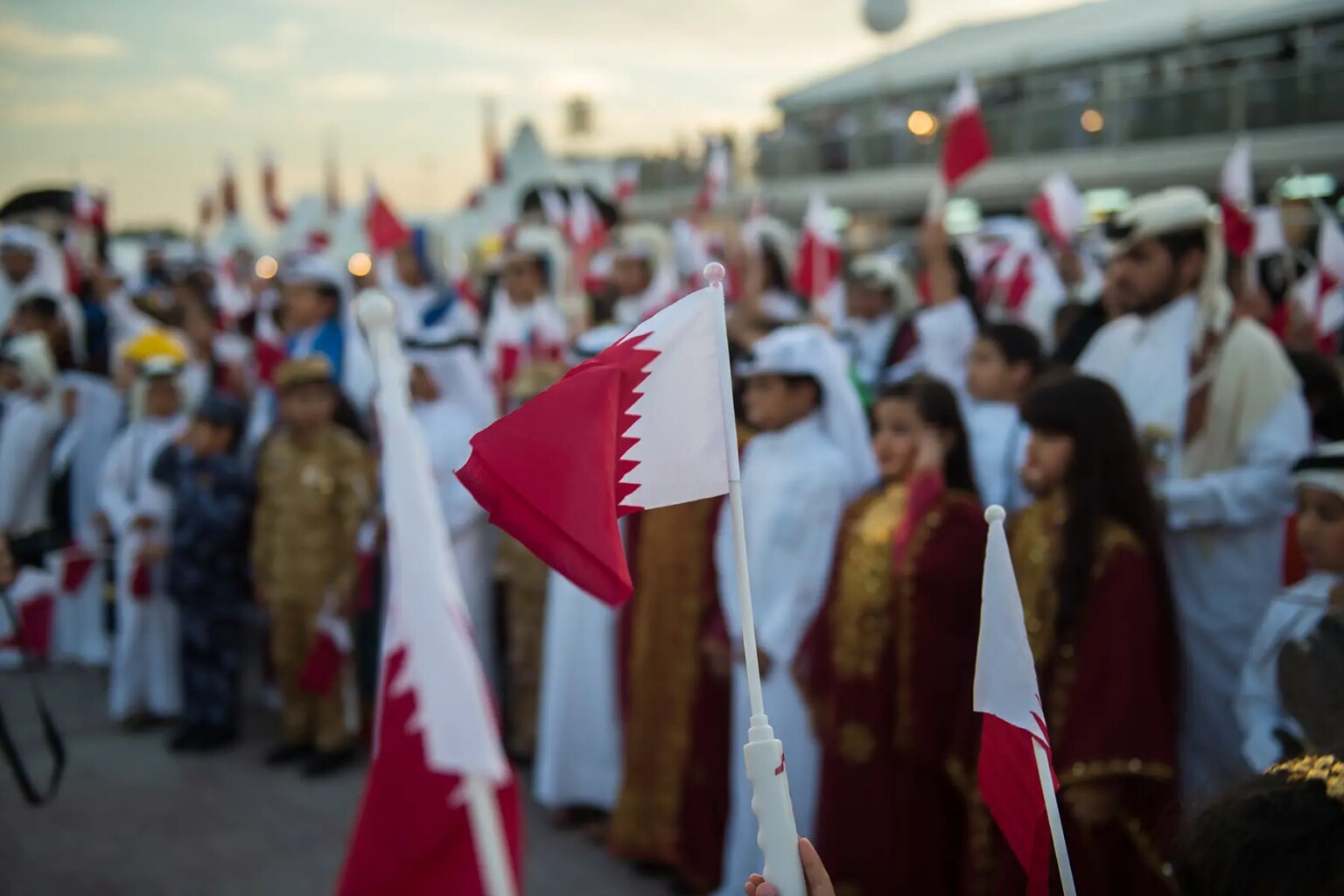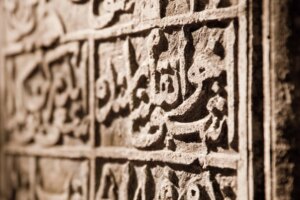The people in Qatar come from all walks of life, with over 88% of the population holding non-Qatari citizenship. A diverse community made up of locals, as well as short- and long-term expats or migrant workers, Qatar is a fast-growing nation that provides a great opportunity to meet and learn more about people from the country as well as many other nations.
If you have questions about the local population in Qatar, this article aims to answer them. It includes the following sections:
- The Qatari people: facts and figures
- Common personality traits and stereotypes of people in Qatar
- Culture and values of Qatari people
- Culture and social etiquette in Qatar
- National dress, style, and fashion in Qatar
- Qatari values
- What people in Qatar like to do
- Where people in Qatar work
- Where people in Qatar live
- Famous people in Qatar
- Useful resources
Sirelo
It’s no secret that moving abroad can be stressful. Sirelo’s team of removal advisers is here to help. They provide five free quotes from international shipping companies so you can find the best options at the best prices. Take the stress out of your relocation to Qatar with Sirelo.
The Qatari people: facts and figures
To make it brief, with such a wide range of people making up the population in Qatar, there are a number of nation-based communities; as well as those who gather based on languages, religion, and recreational activities. For quick help making friends with other expats, check out our article on Expats groups and clubs in Qatar.
Population
- 2,638,657 million with an annual growth rate of 1.95%
- 11.3% Qatari nationals
- 88.4% non-Qatari (25% Indian, 12,1% Bangladeshi, 10% Filipino, 8.6% Egyptian,
- 5.6% Sri Lankan)
Official language
The official language in Qatar is Arabic. However, English is prevalent in business and day-to-day life. In addition, Hindu, Urdu, and Tagalog are widely spoken amongst Asian foreign workers.
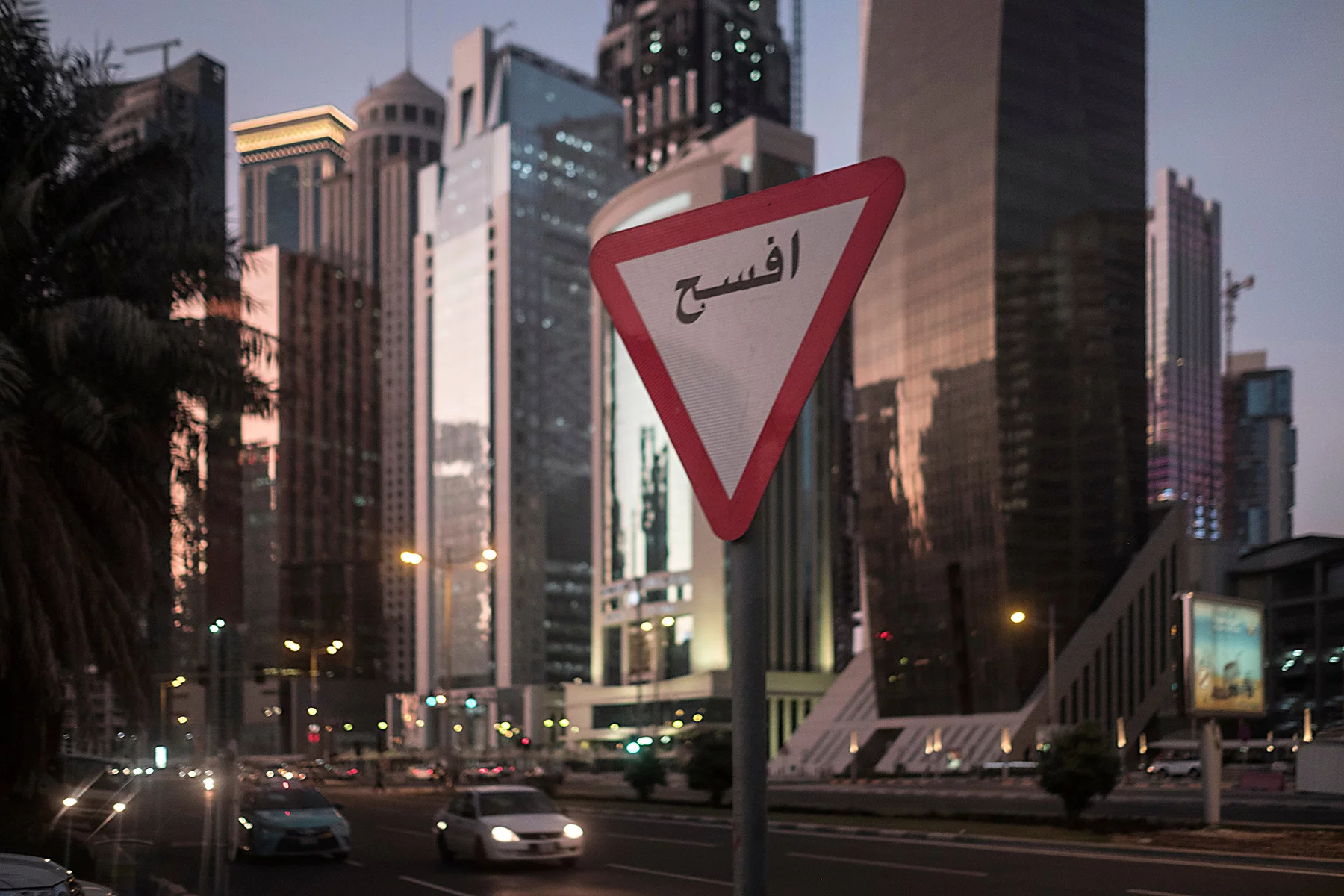
Ethnic groups in Qatar
Religious groups
- 67.7% Muslim
- 13.8% Christian
- 13.8% Hindu
- 3.1% Buddhist
Age groups
- Median age: 33.4
- Birth rate
- 9.5 births / 1,000 population
- Death rate: 1.6 deaths / 1,000 population
- Literacy rate: 97.3%
Common personality traits and stereotypes of people in Qatar
While the reputation of Qatar and its nationals is usually based around its per capita wealth, Qataris are also recognized for demonstrating traditional Arabian hospitality towards visitors. While the stereotype of Qataris who drive quickly in their powerful Land Cruisers is often based on reality, they are also the first to use their four-wheel-drive to pull hapless tourists and residents out of the sand dunes when they find themselves stranded. The concept of time can be a little bit fluid in Qatar, as it is in many Arab countries. While the constant lateness can be frustrating for newbies, it’s rarely seen as being as disrespectful as it can sometimes feel.
Culture and values of Qatari people
Family is very important for many people in Qatar; whether their families live in the country or if they are one of the many foreign workers who send remittances back home each month. Children are welcome in most locations (other than those which are licensed as a bar). In fact, you will often find young ones out with their parents (and domestic staff) in local restaurants and cafés late at night.
A focus on education
In recent years, Qatar’s leadership has aimed at developing a knowledge-focused, non-carbon-based economy. As a result, young Qataris are encouraged to attend undergraduate studies and frequently go on to complete postgraduate studies as well. This aspiration to foster the quality of education contrasts with the reputation that some Qataris had in the past; obtaining management positions without sufficient skills or expertise.
Culture and social etiquette in Qatar
As a Muslim majority nation, much of the social etiquette in Qatar is derived from Islamic tradition. This should be respected by both expats and tourists. When it comes to meeting people of the opposite sex, particularly Arab Muslims – as well as other women who wear the hijab (headscarf) – it is best to err on the side of caution and not offer your hand in greeting. Instead, allow them to extend their hand first so as not to offend or find yourself in an awkward situation.

Arabian hospitality is frequently on display when groups of people or couples go out for a meal, as the host will often try to pay the bill for everyone. It is polite to offer to pay your share, however, at a certain point, you may need to admit defeat. Show your gratitude to the host in another way – at a future outing or by sending a gift.
Laws and penalties in Qatar
Criminal penalties for certain acts reflect the culture of the country. For instance, incidents involving alcohol in Qatar, the use of obscene language, and illegal drug usage may be significantly harsher than in other countries. Qatar is considered relatively safe, with minimal numbers of reported crimes. However, expats should always ensure that they are registered with the embassy of their home country or via their foreign affairs department in case of an emergency.
National dress, style, and fashion in Qatar
When you’re settling into life in Qatar and you’re not yet familiar with what’s considered appropriate, it’s best to play it safe. Modest dress is the way to go in business as well as when it comes to lifestyle. For example, clothing that covers the shoulders, upper arms, and knees are generally acceptable.
Many government buildings have strict dress codes. Some malls implement their own modest dress codes, which they enforce to varying degrees. When visiting hotels, private compounds, and developments such as The Pearl, dress codes are considerably more relaxed.
Traditional Qatari fashion
Qataris pride themselves on their smart presentation. This extends from personal grooming to keeping up with the latest in fashion; both in local dress and western styles. Qatari women traditionally wear the abaya, a long black cape that can be fixed together or open (depending on personal preference), and a shaila, a long black scarf that’s wrapped over their hair.
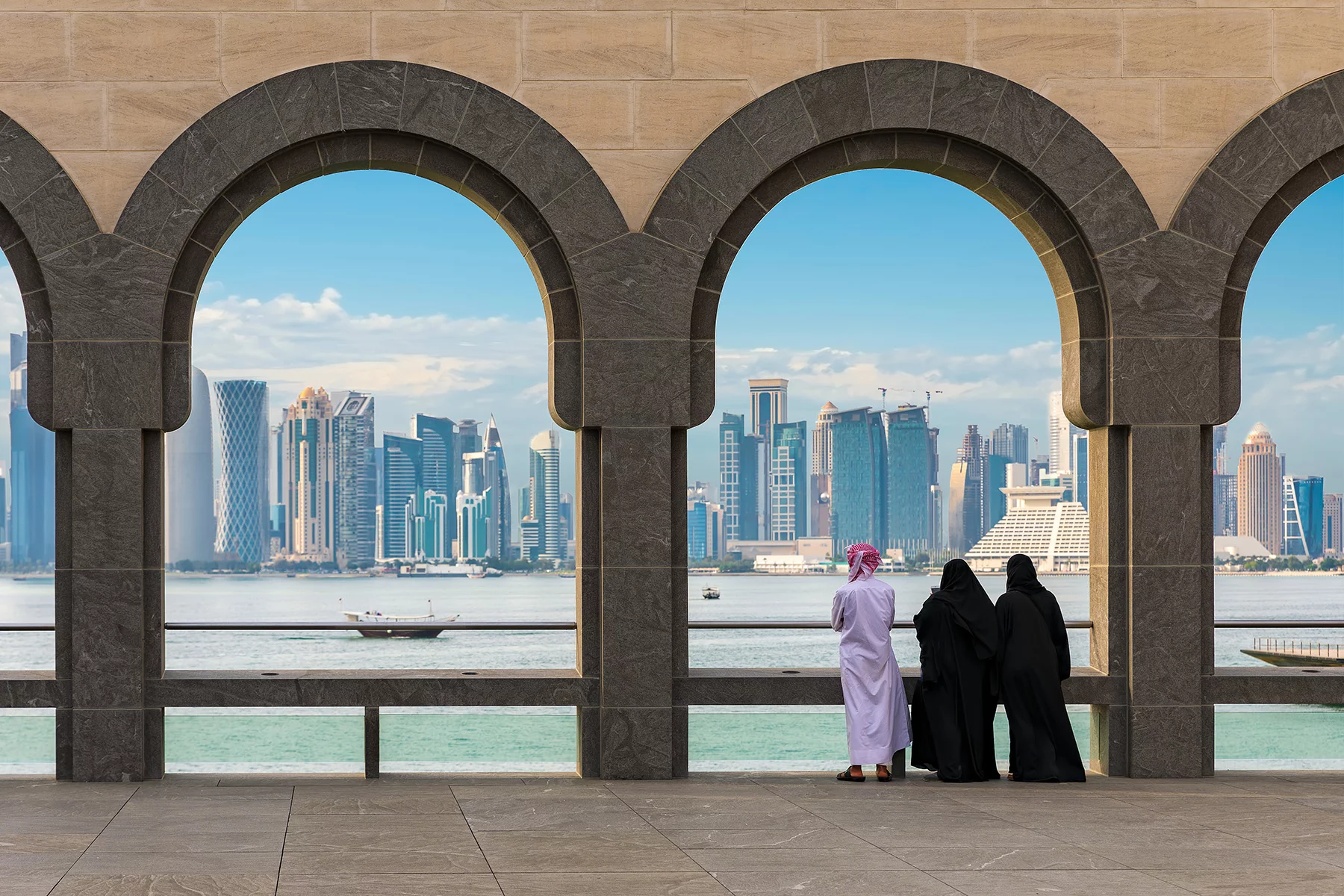
Men, on the other hand, wear the thobe, a floor-length white robe; the ghutra, a scarf in either white or brown shades for the winter; and an agal, the black rope-like accessory that sits atop the ghutra.
Other Arab Muslim or Muslim women of other nationalities tend to wear the hijab or hair covering. Furthermore, they wear modest clothing in mixed-gender environments. While visiting or living in Qatar, non-Muslim women are not expected to wear the hijab (which is required in Iran) or the abaya (which is mandatory in most Saudi Arabian cities).
Qatari values
Qatar’s Emir Sheikh Tamim bin Hamad Al Thani and the Al Thani family are widely revered by the Qatari populace. Since the 2017 blockade of Qatar, led by the United Arab Emirates and Saudi Arabia, the Emir’s popularity has continued to grow.
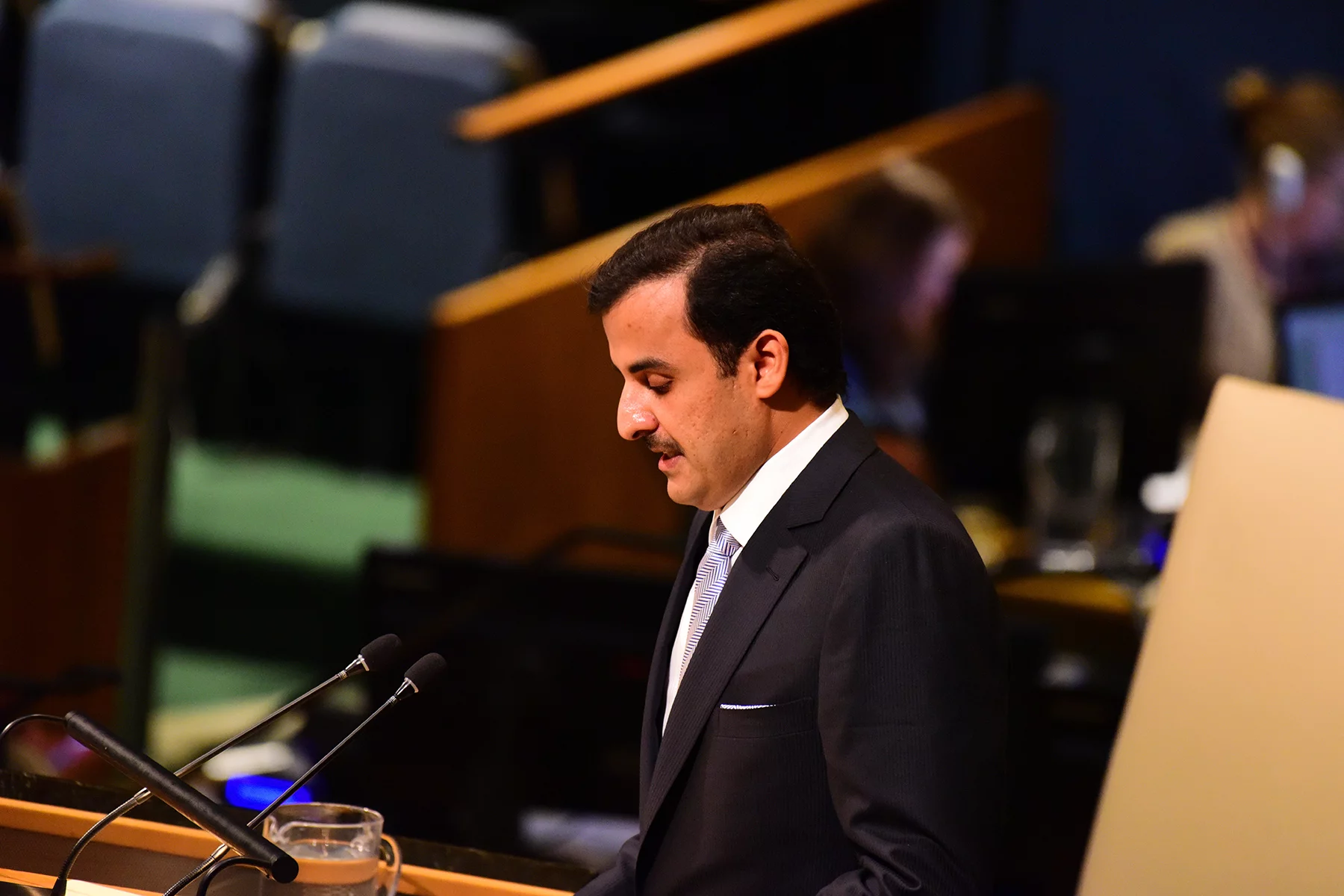
You can see this in Doha’s skyscrapers, where large murals featuring his portrait seem to appear weekly. In fact, criticism of the Emir is not tolerated, and may even result in imprisonment.
Attitudes towards women
Qatar’s National Day is 18 December, when a variety of social and military activities take place to commemorate the success of the country.
Women are highly regarded in Qatar, and many Qatari women hold advanced degrees, while a growing number are in positions of power. However, it is best to avoid directly asking a man about his wife or sister unless you know them quite well; they will see this as a sign of respecting the privacy of the family.
Ramadan is a holy and important month in Qatar, and with it comes a range of societal norms that should be adhered to. For instance, eating, drinking, and smoking in public and in most workplaces during daylight hours is frowned upon. Modest dress is even more important during this period. In addition, Qatar’s sole alcohol distributor and many bars, close.
What people in Qatar like to do
The diversity of Qatar’s population means that people enjoy a wide range of leisure activities. On Friday mornings, the most common day off among the majority of workers, many empty parking lots become pseudo-cricket pitches, with South Asian workers convening for a few overs with friends.
If you are a night owl, you will notice that many families, including children, take advantage of the cooler temperatures at night by walking along the Corniche, sitting in areas like Aspire Park, or visiting malls. Young people can often be found at the mall, however, they are also known to do laps of public spaces in their cars. Katara, The Pearl-Qatar, and the Corniche often become bottlenecks of sociable teenagers.

Qatar hosts more than its fair share of international sports events. These include annual men’s and women’s tennis tournaments, the Qatar Masters, and Swimming World Cup events. Local events such as the Emir’s Cup football tournament, basketball, and volleyball competitions provide almost year-round entertainment for avid sports fans.
In addition, the Doha Film Institute hosts film festivals during the year. These include Ajyal, which is focused on children and families, and Qumra, which is designed to foster local and international film talent.
In recent years, pop-up food trucks, burger restaurants, and specialty coffee spots have appeared at various locations across Doha; providing countless locations for people to visit during the evenings. These are very popular amongst 16 to 35-year-olds and can be very busy on Thursday and Friday nights throughout the year.
Where people in Qatar work
As expected, a significant amount of Qatari government revenue comes from its oil and natural gas resources, with a per capita GDP of around QAR452,000. The contribution from oil and gas stands at 48.5%; with construction at 17%; and finance, insurance, and real estate at 14.7%. Qatar’s unemployment rate is around 8.9% with a labor force of 1.9 million.
Qatar will host the FIFA World Cup in 2022. In addition, a number of capital projects like Hamad International Airport and the Doha Metro have recently been completed (or are underway and nearing completion). With the number of mega-projects in the works, it’s estimated that around 800,000 of the population are involved in construction and other blue-collar roles. Perhaps surprisingly, 5.6% of Qatar’s countryside is used as agricultural land, with these areas growing in importance since the start of the 2017 blockade.
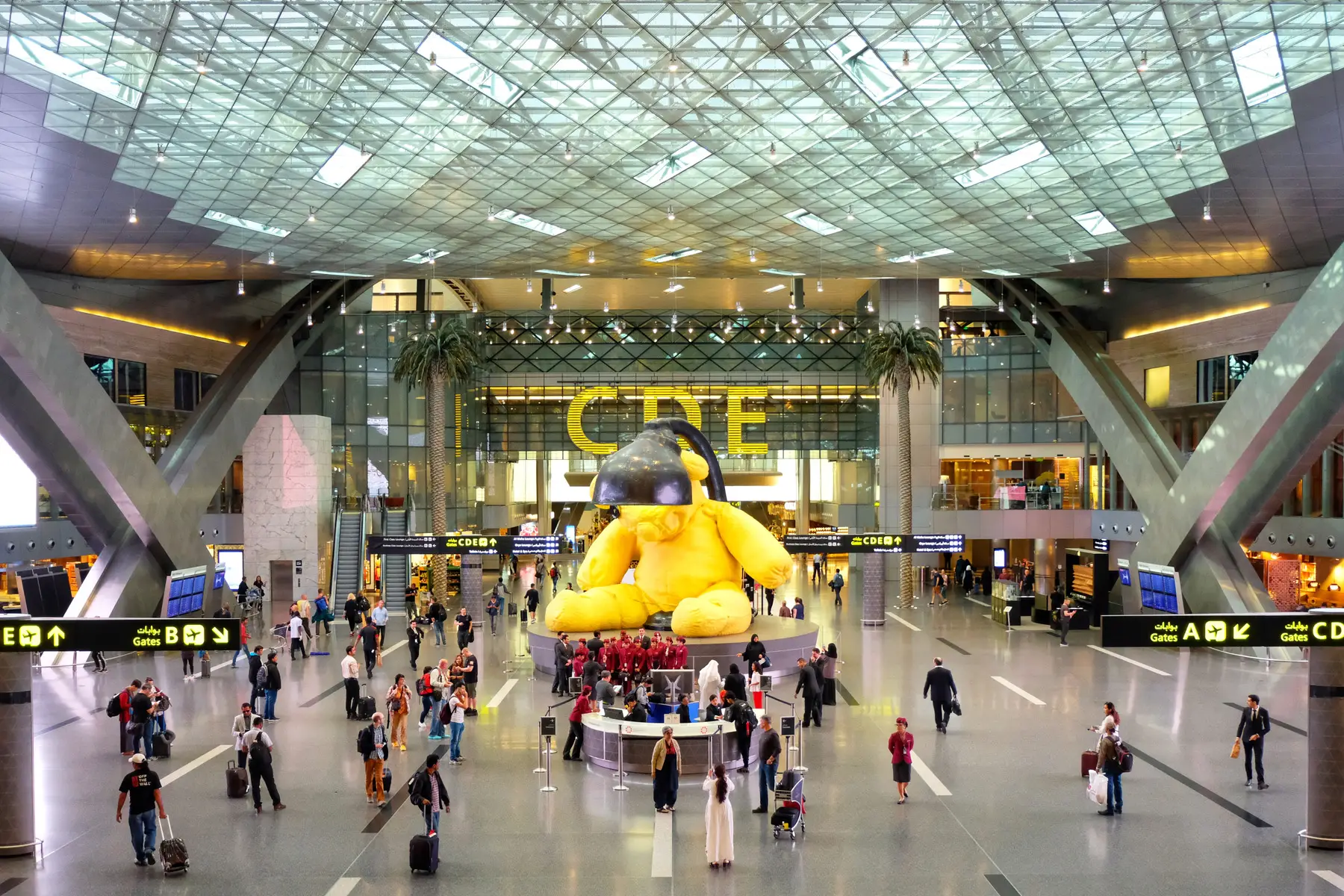
Income tax-free living is often a drawcard for many to move to Qatar. However, since the fall in oil prices and the 2017 blockade, some industries have seen a reduction in the packages being offered for expat workers. The median income in 2019 is around QAR13,000 per month; with around QAR1,500 of additional transport, housing, and other allowances. Salaries can vary widely across sectors, with retail staff averaging around QAR6,500 and construction managers receiving around QAR47,000.
Working hours in Qatar
The work week in Qatar is generally Sunday to Thursday. Government offices close on Friday and Saturday, while many banks and other businesses close on Friday. Most major malls are open from 10:00 to 22:00, with later trading hours over the weekend.
However, virtually all malls, shops, and restaurants close for prayer on Friday between around 11:00 and 12:30. Furthermore, some offices and independent shops operate with two shifts, usually opening from around 8:00 to 12:00 and 16:00 to 21:00 on weekdays.
Part-time and freelance work is still relatively new for Qatar. As a result, it requires more investigation when it comes to getting the appropriate visa or processing payments.
Where people in Qatar live
Nearly 96% of Qatar’s population lives in urban centers such as the capital city of Doha (344,939 inhabitants) and the suburb of Ar Rayyan (272,465 inhabitants). The remaining population is predominantly located in satellite cities shaping the coastline of Qatar: Al Khor (202,031), Al Wakrah (79,457), and Dukhan (7,250).
Qatari families typically live in houses nearby close family members. Many mini-compounds exist, providing privacy for the family with shared facilities. Large labor camps have been developed outside of Doha and Al Khor to house the significant numbers of blue-collar workers.
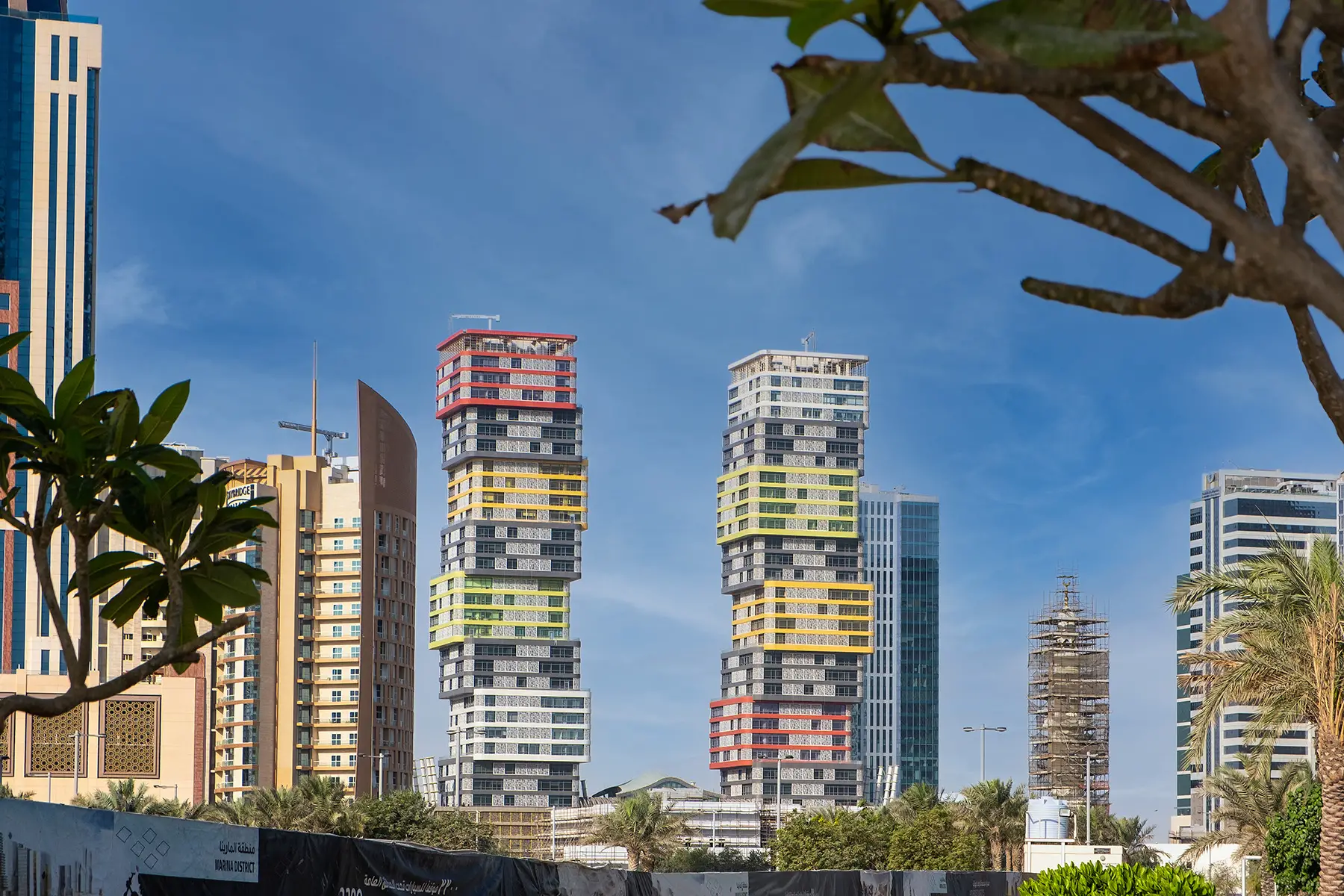
Expats live in a mix of houses in rented compounds, apartment towers, and stand-alone houses. The mixed-use development The Pearl features a mix of apartments and stand-alone houses, with a staggering population of around 27,000 that includes Qataris and expats.
Famous people in Qatar
Sheikh Tamim bin Hamad Al Thani
The Sandhurst-educated Emir of Qatar came to power in 2013 when his father Sheikh Hamad bin Khalifa stepped down from the role. Sheikh Tamim utilized sport as a platform to raise the profile of Qatar on the international stage. He founded Qatar Sports Investments, which went on to own Paris Saint-Germain Football Club among other investments.
Sheikh Hamad bin Khalifa Al Thani
The Father Emir, Sheikh Hamad, ruled Qatar from 1995 to 2013 after seizing power from his father in a bloodless coup. During his rule, Sheikh Hamad saw Qatar hosting US military bases and the successful bid for the 2022 FIFA World Cup. In addition, he established the Qatar Investment Authority, which invested over QAR364 billion around the world.
Sheikha Moza bint Nasser
Wife of Father Emir and mother of the current Emir, Sheikha Moza co-founded and chairs Qatar Foundation as well as acting as chairperson of Silatech and Sidra Medical and Research Center as well as the UNESCO Special Envoy for Basic and Higher Education.
Sheikha Al Mayassa bint Hamad Al Thani
Sheikha Al Mayassa is the sister of the current Emir and serves as the chairperson of Qatar Museums. She regularly appears in Forbes’ World’s 100 Most Powerful Women and won the accolade of the most influential person in art on ArtReview’s Power 100.
Nasser Al Khelaifi
The chairman of beIN Media Group and Qatar Sports Investments, Nasser Al Khelaifi is also president of Paris Saint-Germain Football Club, vice president of the Asian Tennis Federation for West Asia, and was elected as a delegate at the UEFA Executive Committee.
Mutaz Essa Barshim
An alumnus of the Aspire Academy, Mutaz is a high jump athlete who won silver and bronze at the Rio 2016 and London 2012 Olympic Games respectively.
Dana Alfardan
Qatar’s only female contemporary composer, Dana has released collaborations with Qatar Airways for their onboard music as well as co-writing a musical based on Khalil Gibran’s novel Broken Wings.
Fahad Al Kubaisi
A Qatari singer and record producer, Fahad was the first Gulf singer to be nominated at the Grammy Awards.
